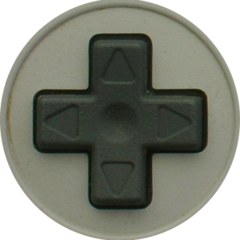-
Posts
32 -
Joined
Awards
This user doesn't have any awards
Profile Information
-
Location
Austria
System
-
Operating System
Linux
plus's Achievements
-

Dual boot with windows fast startup turned on
plus replied to ClassicNoob's topic in Linux, macOS and Everything Not-Windows
this: https://en.wikipedia.org/wiki/PCI_configuration_space#Bus_enumeration Haven't said such a thing. Disable fastboot and they're back. -

Dual boot with windows fast startup turned on
plus replied to ClassicNoob's topic in Linux, macOS and Everything Not-Windows
Filesystems were a bigger issue years ago, but you should still avoid mounting Windows' NTFS volumes from Linux r/w while they are not cleanly unmounted by Windows. Some devices may stop working or disappear in pci enumeration, after switching from fastboot Windows to Linux. Some Intel/Realtek onboard sound cards are a current example. But it won't explode immediately -
Looking at the git sources, it seems like generic hardware is the only one getting regular updates. Eee PC specifics are 8 years old, 6 years for Thinkpad support (stopping support was the only response to the island-style keyboard, tbh), ... https://git.osdn.net/view?a=project_list;pf=android-x86 Android x86 booted on my old Ideapad years ago, haven't tried it since.
-

Windows 10 Boot extremely slow after trying PopOS!
plus replied to TheMiniMiney's topic in Operating Systems
In gparted, the context menu of the NTFS partition has an entry named "Check", click it - and then apply all actions (the green checkmark in the main toolbar). "powercfg /h off" lets Windows Shutdown cleanly instead of hibernate+fastboot, so that unclean states won't happen more often. -
You can tell most bootloaders to boot into UEFI setup next time. For GRUB, it's "fwsetup" in a new grub.cfg option. Using only Windows, it works like this: https://www.windowscentral.com/how-enter-uefi-bios-windows-10-pcs
-

Windows 10 Boot extremely slow after trying PopOS!
plus replied to TheMiniMiney's topic in Operating Systems
Have you already tried disabling Windows' fastboot and hibernation features? They are known to leave NTFS filesystems in unclean states. When using 3rd party NTFS implementations, it can cause problem when writing on an NTFS partition that was left by Windows in such an unimplemented state. To clean up such a "write after an unclean unmount" situation, gparted (something like "pkexec /usr/sbin/gparted", "gksudo gparted", "kdesudo /usr/sbin/gparted" starts the GUI in your distro) from Linux has repair features. To prevent it from happening again, try "powercfg /h off"in Windows' Admin CMD on dual-boot systems. -

KDE black screen Fedora
plus replied to Abhishek sharma's topic in Linux, macOS and Everything Not-Windows
Try to delete ~/.config/kwinrulesrc to reset all custom kwin rules using a text terminal or a different desktop env session from sddm. -

Ubuntu - drive mounting points
plus replied to deflatedrubberduck's topic in Linux, macOS and Everything Not-Windows
If a device is shown as removable storage depends on udev's "HintSystem" and "MediaRemovable" You can check it by # udisksctl info -b /dev/sda1 # cat /sys/block/sda/removable ... and compare it to outputs for /dev/nvme0n1p1. Device names may slightly differ from my example. An udev rule like this can force hotplug off at OS level if the BIOS doesn't: KERNEL=="sda*",ENV{UDISKS_IGNORE}="1" -

How to force lower res without distortion
plus replied to Kidplayer_1204's topic in Linux, macOS and Everything Not-Windows
Are there any buttons on your monitor, at the side, the bottom or the backside, to open the menu? It's sometimes called "Screen Adjustment" or "Automatical Aspect Ratio" in on-screen menus. If you are using a TV, it's probably in the picture settings submenu and called "screen mode". -

How to force lower res without distortion
plus replied to Kidplayer_1204's topic in Linux, macOS and Everything Not-Windows
Have you checked the settings on the monitor itself, if it isn't stretching inputs? -
Does it boot Linux live systems? If the mainboard is listed in fwupd, you can still try updating it. fwupdmgr get-devices If it's listed, try fwupdmgr refresh fwupdmgr get-updates fwupdmgr update
-

Super Strange Problem with a Laptop
plus replied to ProjectPenguinNetwork's topic in CPUs, Motherboards, and Memory
If the problem occurs in different OS and most other kinds of memory can be ruled out, possibly check the CPU for cache health (if it is stable enough to run the program). https://downloadcenter.intel.com/download/19792 -
0) EFI Partition (FAT) 1) MSR - Microsoft reserved (unnamed) 2) "C:\" (NTFS) 3) Microsoft recovery tools (unnamed) 4+5) kali and its swap - or PotPlayer
-

Way to dual boot from different drives without going through Bios?
plus replied to Dravinian's topic in Operating Systems
NTLDR (Windows' default bootloader) is capable of booting kernels on different drives. An additional line to boot.ini should do the task. [boot loader] timeout=5 default=multi(0)disk(0)rdisk(0)partition(1)\WINDOWS [operating systems] multi(0)disk(0)rdisk(0)partition(1)\WINDOWS="Windows XP Gold" /fastdetect multi(0)disk(0)rdisk(1)partition(1)\WINDOWS="Windows Server 2019" /fastdetect Warning: this is just an example, not to be copied directly.



